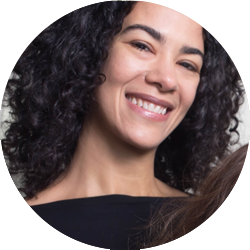There’s a joke floating around online about how to prepare if you’re expecting a baby:
Walk around the living room from 5 p.m. to 10 p.m. carrying a wet bag weighing 8-12 lbs. At 10 p.m., put the bag down, set the alarm for midnight, and go to bed. Get up at 12 a.m. and walk around the living room with the bag till 1 a.m. Set the alarm for 3 a.m. As you can’t get back to sleep, get up at 2 a.m. and make a drink. Go to bed at 2:45. Get up when the alarm goes off at 3 a.m. Sing songs in the dark until 4 a.m. Set the alarm for 5 a.m. Get up. Make breakfast. Keep this up for five years. Look cheerful.
OK, they’re kidding about the five years part.
But the idea of preparing yourself for what it’s like to actually have a baby in your life … that’s no joke.
What’s your plan for baby’s arrival? My plan was to attend childbirth classes and buy all the right baby gear. I spent hours researching car seats and carriers, bottles and bathtubs, swaddle blankets and sleeping situations, diapers and diaper bags. And then I spent hours gathering up all this stuff for half price on Craigslist. This seems to be what most everybody else does, too. We focus on the things that seem tangible, imaginable: the birth; the gear. The rest, we figure, we’ll figure out as we go.
Then–oh! The birth is over. (What was all that stuff they said in childbirth class again?) Baby is here. Life is completely turned upside down physically, emotionally, and mentally. And we haven’t prepared one minute for that part.
Crazy idea: Get yourself to a “Bringing Baby Home” class.
“Bringing Baby Home” is a workshop–research-based, of course–developed by The Gottman Institute. It teaches expecting couples how to cope with the biggest challenges in baby’s first year: how to strengthen your relationship with each other, how to interact with your baby, and how to manage anxiety or depression.
At least 67% of new parents report that they’re much less satisfied with their relationship after baby arrives. This is important. Your relationship with each other affects the quality of your relationship with your child, which influences your child’s development.
We’d all like to assume we’ll be in the other 33%. But the transition to parenthood is full of challenges not yet attempted as a couple. So it can’t hurt to strengthen our friendship, level of intimacy, and skills for managing conflicts. Like training before the big race. “Set yourself up for success,” my former boot-camp coach would say.
If you don’t get a result searching for your city and “Bringing Baby Home,” you could pick up a book the Gottmans wrote based on the workshops. It’s called And Baby Makes Three. I know it’s hard to work through activities in a book together as a couple, though, with no one holding you accountable. You’d have to schedule your own “classes” to sit on the couch, read the book together, and discuss it. Or perhaps you can find a different class in your area on improving your relationship.
Note to hospitals: Come on, hospitals. I see classes on breastfeeding, reading baby’s cues, safety information … all good. But relationship skills for couples is an important missing piece. The benefits are here.
OK, now what if you’ve got that down? I have a crazier idea for you, if you’ve never spent any time around newborns. (I hadn’t. The shock of it all is one thing that prompted me to write Zero to Five: 70 Essential Parenting Tips Based on Science (And What I’ve Learned So Far).)
Crazier idea: Act as a postpartum doula for a good friend for a few weeks. Postpartum doulas come to the home immediately after the baby is born, and they teach new parents how to care for baby, ways to interact. You might not be able to do that part. But you can do the rest: give encouragement, hunt down resources to resolve issues, tidy the house, cook some meals, do baby laundry, and watch siblings.
Now you’re giving the best gift possible to a new parent. And now you’re seeing what those first weeks with a baby are really like.
There can’t be better preparation than that!
Written by
Tracy Cutchlow
Tracy is the author of the international bestseller Zero to Five: 70 Essential Parenting Tips Based on Science, a public speaker, and a creator of places to speak and be heard. Sign up for her newsletter here.

